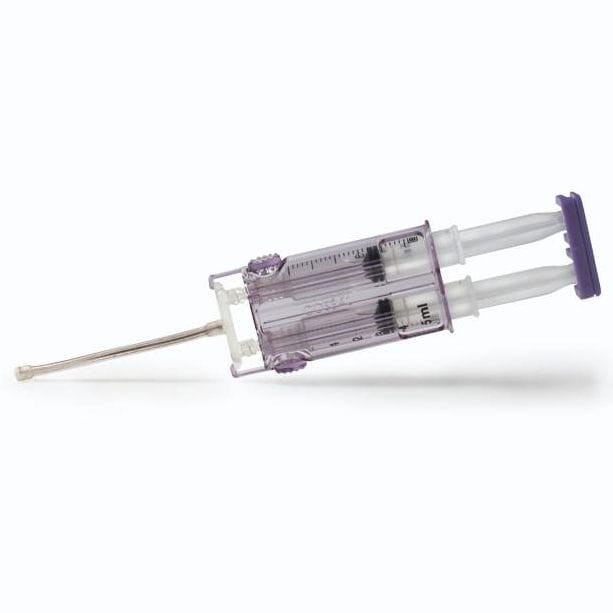


Surgeons rely on COSEAL Surgical Sealant during many types of vascular reconstructions.
COSEAL provides a rapid seal at the suture line, protecting a surgeon’s work during the critical postoperative period and allowing the body time to complete its natural wound healing process.

COSEAL is indicated for use in vascular reconstructions to achieve adjunctive hemostasis by mechanically sealing areas of leakage.
COSEAL is composed of two biocompatible polyethylene glycols that combine with dilute hydrogen chloride solution to rapidly form a covalently bonded hydrogel and adhere to both tissue and synthetic graft materials.
COSEAL can be prepared within 2 minutes and it is stored at room temperature (below 25 Centigrade/ 77 Fahrenheit)
COSEAL works independent of the coagulation cascade, forming a direct mechanical barrier to blood flow regardless of the patient’s coagulation status.
Coseal adheres to irregular surface including pulsatile anatomy without restriction the movement of the surrounding tissue.
COSEAL is more powerful, it can withstand postoperative spikes over 5x normal systolic pressure at up to 660 [+/- 150] mmHg, it remains at application site for 7 days and is resorbed in 30 days.
The thin, translucent, motion-response seal supports natural vascular dilation and can be sutured through, while allowing for visibility at the suture line.
COSEAL Surgical Sealant is largely composed of water (80%) while approximately 20% is comprised of two different PEG (Polyethylene Glycole) molecules and a HCL buffer. Polyethylene Glycole (PEG) is a biologically inert material that is commonly used in surgical devices.
Reduce Blood Transfusion
Cost decrease in hospital Stay
Death ratio decreases
info@biotechpakistan.com
021 34382361
Suite # 302, 3rd Floor, Tahir Plaza,, K.C.H.S.,Karachi, Pakistan – 75350.